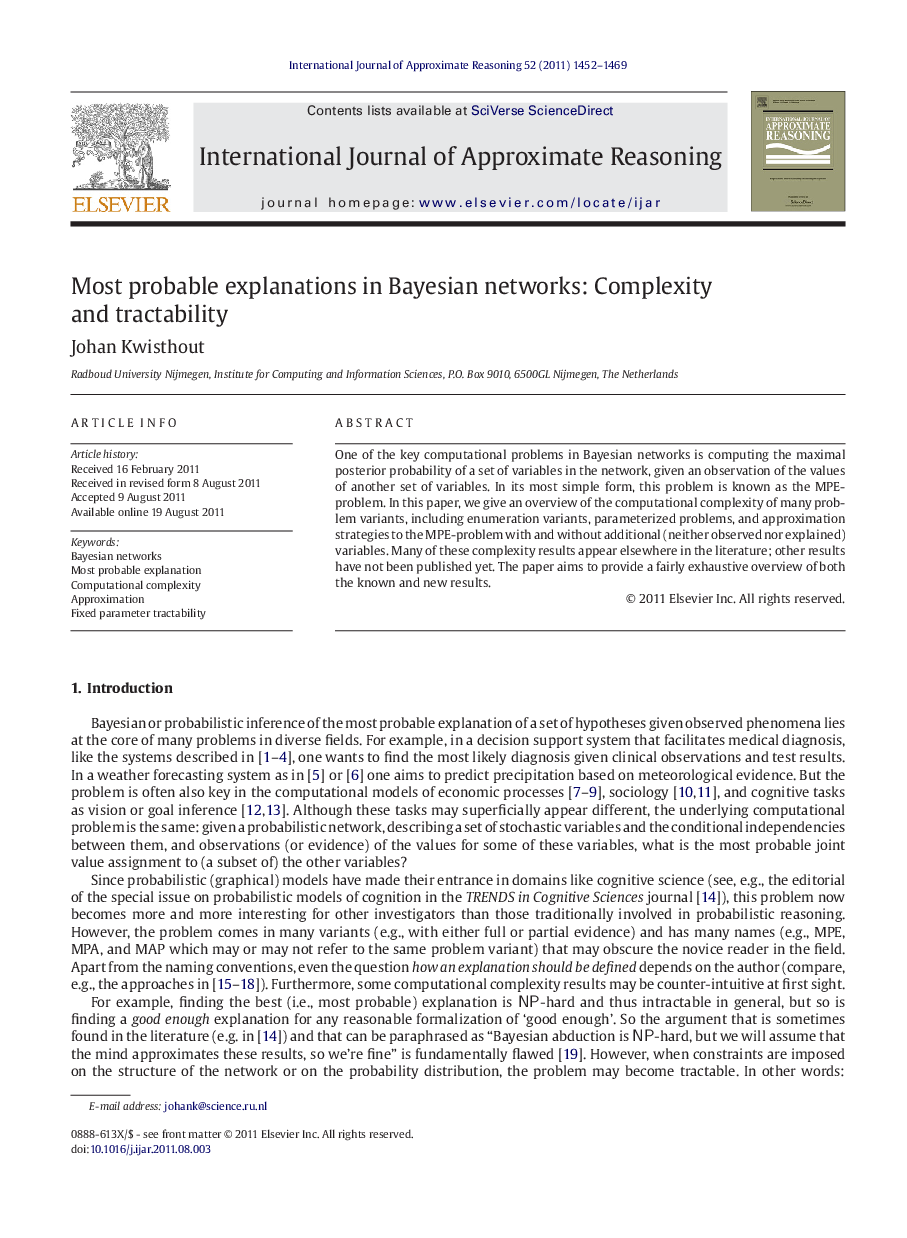| Article ID | Journal | Published Year | Pages | File Type |
|---|---|---|---|---|
| 398086 | International Journal of Approximate Reasoning | 2011 | 18 Pages |
One of the key computational problems in Bayesian networks is computing the maximal posterior probability of a set of variables in the network, given an observation of the values of another set of variables. In its most simple form, this problem is known as the MPE-problem. In this paper, we give an overview of the computational complexity of many problem variants, including enumeration variants, parameterized problems, and approximation strategies to the MPE-problem with and without additional (neither observed nor explained) variables. Many of these complexity results appear elsewhere in the literature; other results have not been published yet. The paper aims to provide a fairly exhaustive overview of both the known and new results.
► An overview of complexity results for the most probable explanation problem in Bayesian networks. ► Exact computation, approximation, enumeration, and fixed-parameter results are given. ► Apart from an exhaustive overview from results in the literature, some new results are included.
